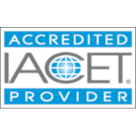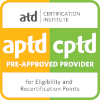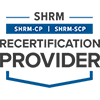Product Details
Topics Covered
- Leadership
- Theories of leadership
- Formal vs. informal leadership
- Leadership levels
- Charismatic leadership
- Hierarchy
- Seven bases for leadership
- Nonprofit leadership issues
Key Features
- Mobile-friendly
- Audio-enabled
- Badge and credit-awarding
- Real-world case studies
- Fully accessible
- Games & Flashcards
- Expert-supported
- Video content
Course Preview
Course Description
Learning Outcomes
- Define leadership and explain its importance
- Distinguish between some of the better-known leadership theories (Fieldler's contingency theory, Path-goal theory, Vroom-Yetton-Jago theory)
- Distinguish leadership from management and administration
- Explain the role of ethics in leadership
- Identify the benefits and drawbacks surrounding charismatic leadership
- Recognize the importance of training, learning, and role-playing in leadership
- Describe the leadership shortage in the nonprofit sector and discuss possible solutions to the problem
- Discuss the seven bases for leadership
- Explain why formal authority alone does not guarantee leadership
- Explain leadership issues that are especially important in the nonprofit environment
- Discuss the nine key qualities for leadership
- Describe the leadership qualities that nonprofit leaders feel are important for success
- Identify the five central skills needed for effective leadership and explain ways to strengthen or develop those skills in a leader
Notes
This course has an "Ask the Expert" feature, which submits your questions directly to an expert in the field you are studying. Questions are answered as quickly as possible and usually within 24 hours.
As an Accredited Provider, MindEdge offers for its learning events that comply with the Continuing Education and Training Standard.
Learners must achieve an average test score of at least 70% to meet the minimum successful completion requirement and qualify to receive credit. Learners will have three attempts at all graded assessments.




